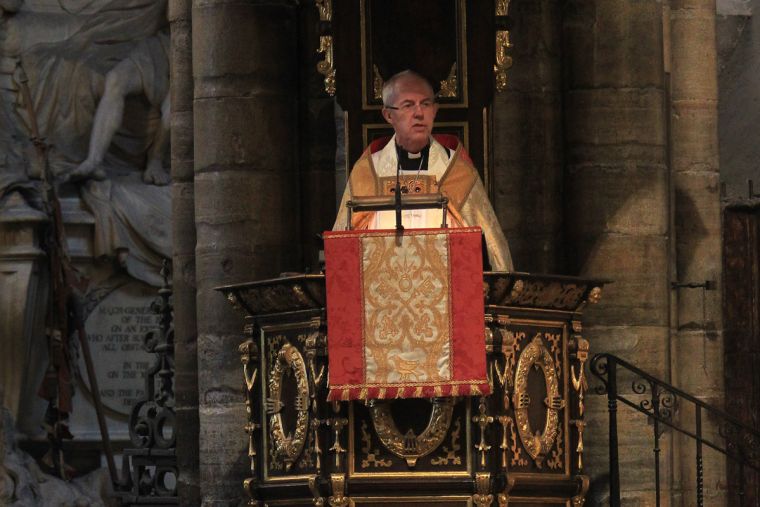Reformation 500: Archbishop urges Church to reform 'again and again' amid 'political pressures'
The Archbishop of Canterbury is urging the Church to undergo another Reformation if it is to flourish amid 'political pressures' and 'the ferocity of sinful power-seeking' today.
Warning against using the Bible to 'serve politics or causes', Justin Welby used the 500th anniversary of the Protestant Reformation to call the global church to unite around fighting inequality and combating materialism.

'Today the gospel speaks to the inequalities of a 21st century world of inequality: of refugees and human trafficking; human arrogance and materialism; in the use of technology as a saviour, rather than as a gift,' he told hundreds of church leaders from around the world, including the heads of the English and Welsh Catholic Church and the Lutheran Church of Great Britain.
'Our speaking and living of the gospel must, like Martin Luther, be speaking to our world as it is,' he said at the Reformation's 500th anniversary service at Westminster Abbey on Tuesday.
Welby was candid about the 'dark side' to the Reformation, saying Martin Luther brought 'first a moment of hope, then of controversy, then of politics and finally of war'.
He said: 'With new vigour came conflict. With individual understanding of grace came individualism and division...With literacy and freedom came new ways of cruelty refined by science. With missionaries bearing the faith came soldiers bearing the flag.'
But he called the Church — addressing Anglicans, Catholics and Lutherans — to be 'reformed again and always, setting aside our differences because we are caught up in the grace that is found through faith'.
He warned: 'Our witness is impeded by our divisions — especially as we live in a world of ever-present competing philosophies, faiths, and approaches to faith or rejections of faith.'
'We are called to be united,' he added. 'In our cultures the realities of difference of self-identity formation, of politics, of language, of our history as both oppressors and oppressed, all drive us, today, into self-reinforcing bubbles of mutual indignation and antagonism. Unity is a witness that, through grace received by faith alone, the cosmos has truly changed, because Jesus came from the Father, and because all has changed that we may as human beings find unity and purpose.'
The comments come as Protestants and Catholics around the world marked the day. In Germany Chancellor Angela Merkel and President Frank-Walter Steinmeier are attending several ceremonies in Wittenberg, starting with a service at All Saints' Church (Schlosskirche) — where Luther is supposed to have nailed his list of criticisms to the door in 1517.
The whole country is celebrating October 31 as a national holiday and the entire town centre in Wittenberg has been tranformed to recreate the medieval era in which Luther lived, with performances taking place throughout the day.
Pope Francis has also commemorated the day telling Derek Browning, Moderator of the presbyterian Church of Scotland, there was 'true fraternity' between the two churches. After five centuries of tension the two traditions were 'no longer ... adversaries, after long centuries of estrangement and conflict', the pontiff said.
'For so long we regarded one another from afar, all too humanly, harbouring suspicion, dwelling on differences and errors, and with hearts intent on recrimination for past wrongs.'
A spokeswoman for the Catholic church in England and Wales said: 'The desire for reconciliation is such that mistakes can be recognised, injuries can be forgiven and wounds healed.
'We give thanks to the joy of the gospel we share as Christians, express repentance for the sadness of our divisions and renew our commitment to common witness and service to the world.'











